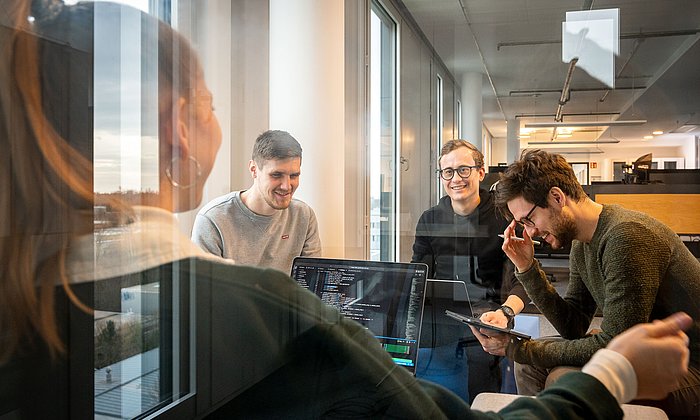OpenAI founder visits Munich
Sam Altman discusses ChatGPT at TUM

The 1100-seat Audimax auditorium was fully booked within half an hour for the 38-year-old tech CEO’s only public event in Germany on his European tour. With moderation by Reinhard Heckel, professor for machine learning, Sam Altman and OpenAI developer Johannes Heidecke described the development of the language model up to the current fourth version. „Even by GPT-3 not the whole company was convinced”, said Altman. Crucial to the success was the chat functionality in natural language, which is a better human-computer interface than the touchscreen, he explained. But the mistake of thinking of ChatGPT as an huge database still persists.
Altman explained why OpenAI made the technology publicly available at an early stage, following a “show, don’t tell” approach: „We very strongly believe that it is important to educate the world about this and for people to have time to adapt gradually.” This permits debate on artificial intelligence. That is better than keeping technologies secret in labs for a long time because releasing it too early would allegedly scare people.
International regulatory framework
Altman drew a line at the audience request for open-sourcing of the code. „We want to be relatively sure that when we open source a model we understand those capabilities and the impact they have on society, because you can’t take it back.” In principle, people must retain control over the technology, he believes.
Altman also commented on the regulation of artificial intelligence: “Some sort of international framework is a very good idea and we should start with that as soon as we can.” As an example, he mentioned the work of the International Atomic Energy Commission. He opposes the idea of hitting the pause button on the development of powerful AI systems, as recently demanded by other entrepreneurs. OpenAI now wants to see what values and limits users want for ChatGPT and how the system should be adapted to different countries, legal systems and cultures.
“The best time for a career in technology”
Asked about the differences between the American and European technology sectors, Altman noted the greater openness to risk in the USA: „It’s socially acceptable to work on something super ambitious.” If you fail, people don’t make fun of you. Students in Europe should not be discouraged. “This is the best time to be starting a career in technology”, he said.
In his welcome to Sam Altman, TUM President Thomas F. Hofmann stressed the transformative potential of the new generation of generative AI for our entire civilization. “We have to make sure that all these developments do not come at our highest prize, and this is the prize of humanity, it’s the prize of self-determination”, he said.
TUM and the TUM Speakers Series organized the event in cooperation with Digital Life Design (DLD), the international conference and innovation platform of Hubert Burda Media.
Technical University of Munich
Corporate Communications Center
- Klaus Becker
- klaus.becker@tum.de
- presse@tum.de
- Teamwebsite


